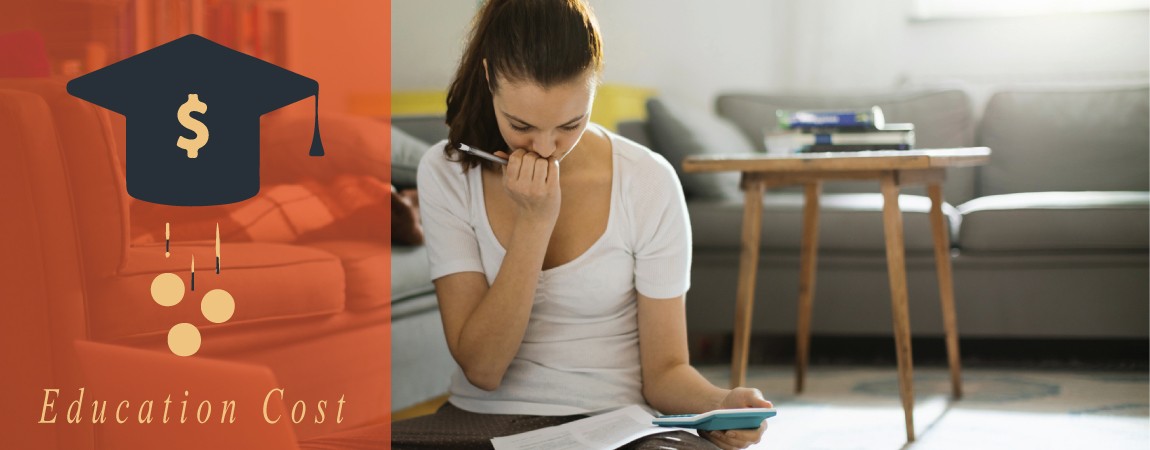
How much does it cost to study in Australia? If you’re interested in studying in Australia, one of the most important things to consider is living expenditures. This essential guide breaks down the cost of every aspect of university life to ensure that you’ve got everything covered.
Note that prices and exchange rates are $1 = BDT 65.56 (all figures noted are in Australian dollars)

Australia is one of the most popular destinations for Higher Education but, like the UK and the US, it’s also one of the most expensive.
However, regions differ greatly and it’s worth exploring all avenues before ruling out the possibility of studying Down Under. For example, international students can pay their fees well in advance of the term starting, which helps with budgeting during the school term.
In 2017, the average international undergraduate studying in Australia needed $29,235 per year (all figures noted are in Australian dollars), or BDT 19,16,772. Undergraduate degrees last between three and four years in Australia, therefore an international student should expect to finish a three-year degree with $87,705 (BDT 57,50,318) of debt in tuition fees.
A master’s degree costs $20,000-37,000 (BDT 13,11,286 -24,25,879), with a doctoral degree ranging from $14,000 to $37,000 (BDT 9,17,900-24,25,879). Veterinary and medical degrees cost considerably more than this. For example, at the Australian National University in 2017, a BA in an Arts subject cost $32,640 (BDT 21,40,019) per year and a BSc in a science subject was about $43,632 (BDT 28,60,702) per year.
Fees in Australia are generally calculated per unit, rather than per year. Most students will be studying a combination of units from different bands and each unit will fall into a different band and be costing – so all students will be paying varying amounts each year.
Like many other countries, domestic students will pay far less to study in Australia than international students. The University of Melbourne, for example, lists the cost of a master’s in psychiatry in 2018 at $18,080 (BDT 11,85,402) per year, and up to $54,880 (BDT 35,98,169) for a doctorate in veterinary medicine. The contributions demanded from domestic students are capped and subsidized by the government, and many are eligible for the Higher Education Loan Program (HELP).

Accommodation costs vary, depending on the type and region: the more rural regions, in the western and northern Australian states, will be much cheaper, whereas more urban areas, for example around Sydney, will cost more, particularly if you are downtown.
On-campus accommodation is typically $90-280 (BDT 5,900-18,358) per week, a homestay is $235-325 (BDT 15,407-21,308) per week and shared rental accommodation is $85-215 (BDT 5,572-14,096) per week. Australian universities usually recommend $18,000-28,000 (BDT 11,80,157-18,35,800) per annum.

Rented accommodation may have some of the utility costs included. If they are not, the average gas and electricity bill is $50-100 (BDT 3,278-6,556) a month, phone and internet (typically in one single package) is $150-200 (BDT 9,834-13,112) a month and the equivalent of a council tax bill (water/sewerage/waste management) is $50 (BDT 3,278) a month split between tenants.
In order to obtain a visa for studying in Australia, applicants will need to prove they have $19,830 (BDT 13,00,140) per year for living costs alone, to cover one to two years. Student visas can cost anything up to $560 (BDT 36,716). Always check the terms of a student visa, because certain types prohibit students from working while they study.
It is compulsory to have Overseas Student Health Cover (OSHC), which costs the average undergraduate student $2,164.17 (BDT 1,41,892) for three years.
There is a possibility that students will be charged a Student Services and Amenities Fee (SSAF) on top of their tuition fees – a non-academic fee that funds services and support programmes that can be used by all students. This varies by university and region but is typical $294 (BDT 19,275) per academic year.
You also need to prove that you have booked a return airfare to your home country at the end of the period of study.
A budget for books and academic supplies is estimated at $500-1,000 (BDT 32,782- 65,564) per year.
Some universities provide a private transport system free of charge for students to get around and there are many discount programmes depending on the state (Queensland, South Australia, and Melbourne all provide subsidized transport for students).
Without a discount, a monthly public transport pass costs $30-70 (BDT 1,966-4,589) and a one-way ticket is $4 (BDT 262). Bicycles are also a popular mode of transport in the urban university areas, in Melbourne in particular. A liter of petrol, on average, costs $1.31 (BDT 85.89).

The average weekly grocery shop costs $80 (BDT 5,245) and eating a meal in an average restaurant is $18 (BDT 1,180). The average cinema ticket costs $18 and a Big Mac is $4.53/BDT 297 (2017 figures).
The average gym membership is $62.51 (BDT 4,098) per month. Nights out vary, depending on the territory: $61 (BDT 3,999) in Melbourne, $55.50 (BDT 3,638) in Brisbane, $50.50 (BDT 3,311) in Adelaide, $57.50 (BDT 3,769) in Perth and $51.60 (BDT 3,383) in Sydney.





